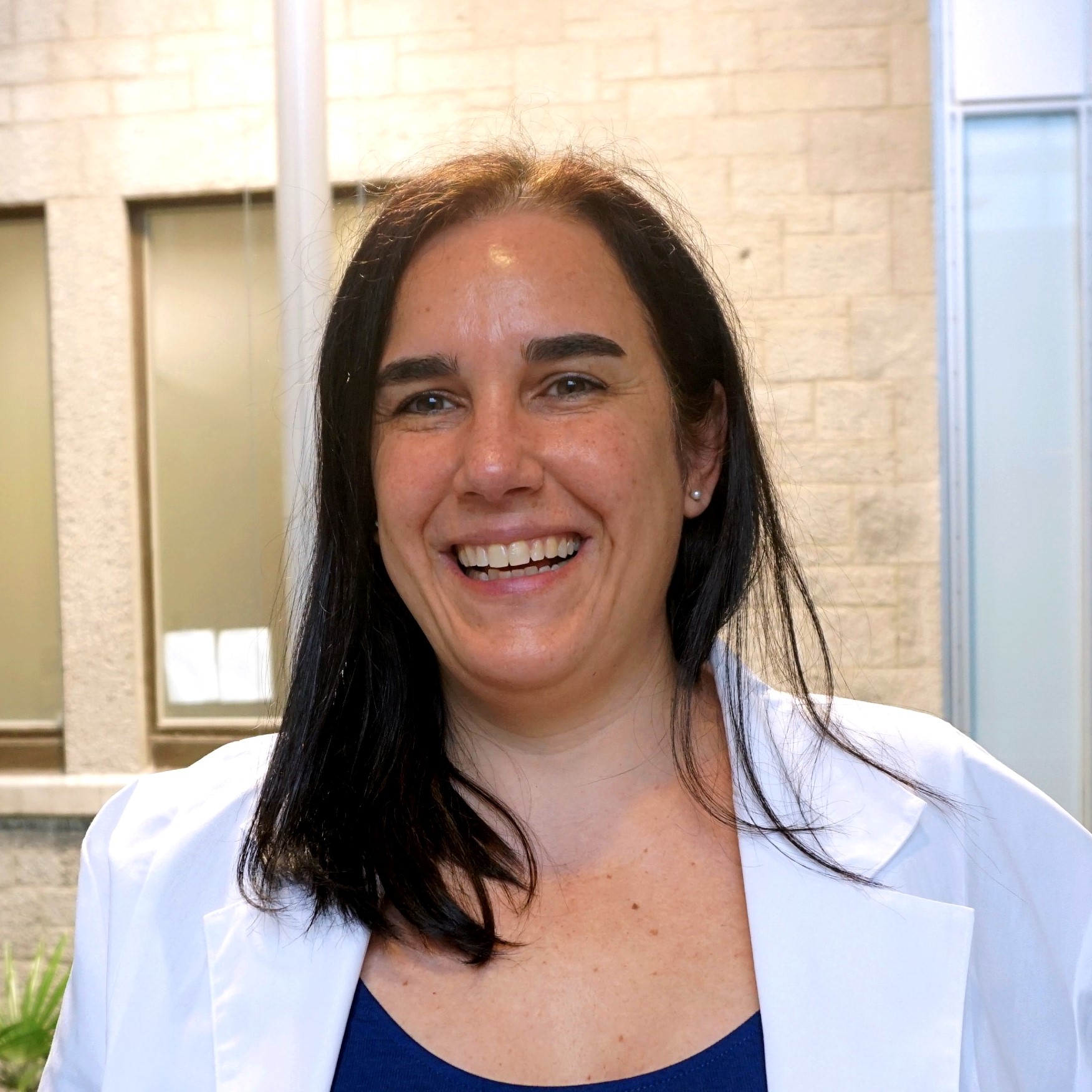ÉTUDES EN RECRUTEMENT
Contactez nous à als-cru.neuro@mcgill.ca
Ou téléphonez au (514) 514-398-6183
AP101-02
Le but de ce projet est d’évaluer l’innocuité, la tolérabilité, la PK et la PD de l’AP-101 chez les participants atteints de fALS et de sALS.
Les participants éligibles seront randomisés pour prendre le médicament à l’étude ou un placebo par perfusion intraveineuse (IV).
Cette étude comprend des perfusions au jour 1 et une dose d’entretien au jour 2 et toutes les 3 semaines jusqu’à la semaine 24. Il y a un suivi après 12 semaines supplémentaires.
Biogen 275AS101 (Ataxin) (BIIB105)
L’objectif de l’étude est de déterminer si BIIB105 est sûr et tolérable chez les personnes atteintes de SLA ou de SLA polyQ. Cette étude évaluera également:
comment le corps traite BIIB105 (appelé «pharmacocinétique» ou PK);
les concentrations de BIIB105 dans le liquide céphalorachidien (LCR), c’est-à-dire le liquide autour de la moelle épinière;
ce que BIIB105 fait dans le corps (appelé «pharmacodynamique» ou PD);
si BIIB105 modifie les symptômes de la SLA.
COMBAT-ALS (ibudilast)
Évaluation du MN-166 (Ibudilast) pendant 12 mois suivie d’une extension en ouvert pendant 6 mois chez des patients atteints de SLA (COMBAT-ALS)
Une étude multicentrique de phase 2b/3, randomisée, en double aveugle, contrôlée par placebo et en groupes parallèles pour évaluer l’efficacité, l’innocuité et la tolérabilité du MN-166 administré aux participants SLA pendant 12 mois, suivie d’une phase d’extension en ouvert de 6 mois .
Plus d’informationsHIMALAYA (ACT16970 - SAR443820)
Étude de phase 2 pour SAR443820 chez des participants atteints de sclérose latérale amyotrophique
Il s’agit d’un traitement parallèle, phase 2, étude randomisée en double aveugle pour évaluer l’efficacité, l’innocuité, la tolérabilité, la PK et la PD du SAR443820 oral deux fois par jour (BID) par rapport au placebo chez les participants masculins et féminins, 18 à 80 ans de âge avec la SLA suivi d’une période d’extension à long terme en ouvert.
L’étude se compose de 2 parties (A et B) comme suit :
La partie A est une partie de 24 semaines, en double aveugle, contrôlée par placebo, précédée d’une période de dépistage pouvant aller jusqu’à 4 semaines avant le jour 1.
La partie B est une période de prolongation ouverte à long terme qui commence à la fin de la partie A (semaine 24) et se poursuit jusqu’à la semaine 106.
ION363-CS1 (ION363)
Une étude de Phase 1-3 pour évaluer l’efficacité, l’innocuité, la pharmacocinétique et la pharmacodynamie de ION363 administré par voie intrathécale chez des patients atteints de sclérose latérale amyothrophique avec la mutation FUS
Évaluer l’efficacité clinique de ION363 dans le fonctionnement clinique et la survie des patients atteints de sclérose amyotrophique latéral avec la mutation FUS (fusionnée en cas de sarcôme).
ÉTUDES OBSERVATIONELLES
ALS Pharma
Le but de ce projet est de comparer la présence de protèine SOD1 dans le liquide céphalo-rachidien de participants atteints de SLA avec le liquide céphalo-rachidien de volontaires non SLA appariés sur le plan démographique. Pour ce faire, une ponction lombaire doit être pratiquée.
CALS-NIC2
Cette étude a été conçue pour améliorer notre compréhension des changements survenant dans le cerveau en présence d’une SLA ou d’une autre maladie des motoneurones, et ce, au moyen de techniques d’IRM avancées.
La SLA est une maladie dégénérative complexe des motoneurones. Il n’existe actuellement aucun traitement capable de ralentir significativement la progression de la maladie. Il est difficile de mesurer avec précision les changements qui surviennent dans le cerveau, ce qui complique la découverte de traitements efficaces.
Cette étude nous aidera à comprendre le lien entre les changements dans le fonctionnement du cerveau et les symptômes et la progression de cette maladie des motoneurones. On espère que les méthodes avancées d’IRM utilisées dans cette étude aideront à diagnostiquer la SLA plus rapidement au cours de son évolution et à améliorer l’évaluation des nouveaux traitements.
CAPTURE SLA
Plateforme d’analyse complète pour comprendre, remédier et éliminer la SLA (CAPTURE SLA)
Il s’agit d’une étude de cohorte prospective, multicentrique et longitudinale portant sur l’histoire naturelle de la SLA et des troubles apparentés. CAPTURE ALS recueillera des données et des échantillons biologiques auprès des participants afin de créer l’image biologique la plus complète des personnes vivant avec la SLA.
Grâce à la science ouverte, ces informations recueillies auprès des participants seront partagées de manière anonyme avec des chercheurs du monde entier sur la SLA afin de mieux comprendre et traiter la SLA.
REFINE-ALS
Radicava®/(Edaravone) Findings in Biomarkers From ALS (REFINE-ALS)
The purpose of this study is to find biomarkers that show why edaravone is slowing ALS symptom progression. The data gathered during the study may also be useful for medical professionals and researchers in the future.
For this study, 300 male and female participants aged 18 and older will be recruited at approximately 40 sites.
You are about to start taking edaravone per your standard of care treatment for your ALS treatment. We will ensure that your visits for the clinical trial are scheduled around your standard of care treatment.
L’ÉQUIPE – SLA
L’ÉQUIPE – SLA

Dre Angela Genge
Chercheuse principale

Vanessa Bertone
Chef d'équipe, Coord. Recherche principale

Dipannita Purkayastha
Coord de recherche clinique
L’ÉQUIPE – SLA
L’ÉQUIPE – SLA

Dr Rami Massie
Chercheur principal

Maria Gobbo
Coordinatrice de recherche clinique

Lana McGeary
Coordinatrice de recherche
ÉTUDES À VENIR
Machine Learning in ALS
The purpose of this study is is to develop a tool that allows identification of UMN and LMN features in speech in patients with bulbar dysfunction due to ALS and other MND.
Learning more about characteristics of UMN and LMN symptoms in ALS/MND will help us to better understand the disease, possibly improve time between symptom onset and diagnosis and may result in new assessment and therapy tools.
For this study, 150 male and female participants will be recruited at about 11 ALS/MND clinics throughout Canada and the USA (in Toronto, London, Hamilton, Edmonton, Calgary, Saskatoon, Montreal, Quebec City, Fredericton, Gainesville and Ohio).
MT-1186-A03 (A01 extension study) (oral edaravone)
The purpose of this study is to evaluate the long-term safety and effectiveness of edaravone in participants with Amyotrophic Lateral Sclerosis (ALS) over 96 weeks.
The results of this study could help Mitsubishi Tanabe Pharma Development America, Inc. acquire Health Canada approval for the oral liquid form of edaravone in the future. This would allow the oral liquid form of edaravone to be used in regular medical practice. The data gathered during the study may also be useful for medical professionals and researchers in the future.
For this study, 100 male and female participants who successfully completed study MT-1186-A01 will be enrolled in this study. The participants will be aged between 18 and 75 years.
ÉTUDES ACTIVES (NE RECRUTENT PLUS)
ALS-AT-1501-A201
The purpose of this study is to assess the safety and tolerability of AT-1501.
For this study, 54 male and female participants will be recruited at 10-13 sites. The participants will be ages 18 years and older.
ANX005-ALS-01
Le but de cette étude est de déterminer si le médicament expérimental ANX005 est bien toléré et sûr chez les sujets atteints de SLA lorsqu’il est administré le jour 1, le jour 5 ou 6, puis toutes les 2 semaines les semaines 2, 4, 6, 8 et 10. Un autre objectif de cette étude est d’en savoir plus sur le médicament expérimental.
Pour cette étude, 24 participants masculins et féminins seront recrutés sur environ 18 sites dans le monde. Les participants seront âgés de plus de 18 ans.
link= »https://clinicaltrials.gov/ct2/show/NCT04569435″ type= »icon » newwindow= »yes »] More information[/button]
BIOGEN 233AS102 (BIIB067)
L’objectif principal de cette étude de prolongation est de découvrir l’innocuité (absence de danger), la tolérabilité et la pharmacocinétique (PK) à plus long terme du médicament à l’étude chez des participants atteints de la sclérose latérale amyotrophique provoquée par une mutation du gène de la superoxyde dismutase-1 (SLA-SOD1).
CALICO (M20-405)
ABBV-CLS-7262 est un médicament expérimental en cours de recherche pour le traitement de la sclérose latérale amyotrophique. Il s’agit d’une étude en 2 parties de 48 semaines. La partie 1 sera une étude de 4 semaines, randomisée, en double aveugle, contrôlée par placebo ; La partie 2 sera une extension de traitement actif (ATE) de 44 semaines au cours de laquelle tous les sujets recevront ABBV-CLS-7262.
Hudson Biomarker LP study
Il arrive que le sang et le liquide rachidien des personnes atteintes d’une maladie contiennent des substances différentes de celles que l’on retrouve chez les personnes qui n’ont pas cette maladie. On tente de détecter ces substances dans le sang et le liquide rachidien de patients atteints SLA et de SLA-DFT. On cherche à savoir si ces substances peuvent avoir un lien avec différents stades de ces maladies. On souhaite également savoir si certaines de ces substances se retrouvent chez les patients atteints de SLA et les patients atteints de SLA-DFT.
MT-1186-A02 (edaravone oral quotidien)
Une étude de phase 3b, multicentrique, randomisée, en double aveugle pour évaluer l’efficacité et l’innocuité de l’édaravone orale administrée pendant une période de 48 semaines chez des sujets atteints de sclérose latérale amyotrophique (SLA)
Le but de cette étude est de tester si une forme liquide orale expérimentale d’edaravone (une solution liquide que vous allez avaler) est efficace comme traitement contre la SLA ; et s’il est sûr et bien toléré lorsqu’il est administré à des patients atteints de votre maladie. L’étude comparera l’efficacité et l’innocuité de deux schémas posologiques différents de la forme orale de l’édaravone.
Pour cette étude, environ 380 participants masculins et féminins seront recrutés dans environ 95 sites. Les participants seront âgés de 18 à 75 ans inclusivement.
MT-1186-A03 (edaravone oral)
Une étude de phase 3b, multicentrique, randomisée, en double aveugle pour évaluer l’efficacité et l’innocuité de l’édaravone orale administrée pendant une période de 48 semaines chez des sujets atteints de sclérose latérale amyotrophique (SLA)
Le but de cette étude est de tester si une forme liquide orale expérimentale d’edaravone (une solution liquide que vous allez avaler) est efficace comme traitement contre la SLA ; et s’il est sûr et bien toléré lorsqu’il est administré à des patients atteints de votre maladie. L’étude comparera l’efficacité et l’innocuité de deux schémas posologiques différents de la forme orale de l’édaravone.
Pour cette étude, environ 380 participants masculins et féminins seront recrutés dans environ 95 sites. Les participants seront âgés de 18 à 75 ans inclusivement.
REALS-1 (Enoxacin)
Étude monocentrique de phase 1b/2 à répartition aléatoire, à double insu et en groupes parallèles visant à évaluer l’innocuité, la tolérabilité, la pharmacocinétique et la pharmacodynamique de trois doses d’énoxacine (200 mg deux fois par jour, 400 mg deux fois par jour et 600 mg deux fois par jour) chez des patients atteints de sclérose latérale amyotrophique
L’objectif de cette étude est d’évaluer l’innocuité et la tolérabilité de l’énoxacine chez les patients atteints de SLA.
WVE-004
Il s’agit d’une étude multicentrique de phase 1b/2a, randomisée, en double aveugle et contrôlée par placebo visant à évaluer l’innocuité, la tolérabilité, la PK et la PD du WVE-004 intrathécal (IT) chez des patients adultes atteints de SLA ou de FTD associée à C9orf72. Pour participer à l’étude, les patients doivent avoir une mutation documentée dans la première région intronique du gène C9orf72 et être diagnostiqués avec la SLA ou la FTD.
Pour cette étude, 42 personnes âgées de 18 à 80 ans seront recrutées.
